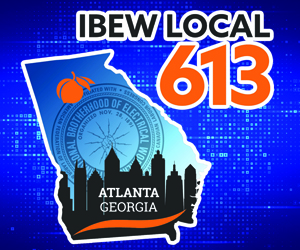Score Atlanta reporter Jason Boral got the chance to chat with the head honcho of the Georgia High School Association, Executive Director Ralph Swearngin. Check out the complete Q-and-A session below:
Boral: How many complaints did you get regarding the reclassification?
Swearngin: That’s a tough question. We had a whole lot of appeals but not many more complaints than in other years. At this stage a lot of people choose to complain among themselves and don’t tell us whether they like it or not.
How many appeals did you uphold?
Our constitution and by-laws allow, at several places along the line, an appeal on where you were placed. You can appeal, first off, to the Reclassification Committee, and if they don’t sustain your appeal you can take it to the full Executive Committee. I don’t have the specifics right in front of me but we had a handful of those who appealed to the Executive Committee.
What was the main reason for the appeals?
They just didn’t like where they were, and they would try to show us that there was a better way for them to be placed in a region.
What is the overall philosophy for the Reclassification Committee?
The first thing we do is put them in groups according to size of schools and then we allow schools, if they choose to play at a higher classification, to do that. Once that’s all done, then we choose to put them in regions, primarily based on geography. We are also concerned about making sure there’s a similar number of teams in each region as in previous years. We’ve had some difficulties because there were, in segments of the state state, especially in South Georgia, where there were so few schools we only have four teams in a region, so we try to deal with that. Right now, beginning a few years ago, a fair amount of schools and travel cost have been more important than keeping the rivalries going and those types of things.
Greenbrier’s travel schedule for road games is a lot tougher than some of the other schools in their classification. Is this an example of just one school that has no other place than to be much farther from the other teams in the region?
This is not an unusual situation. Evans High School was in a similar situation. When one school in a remote area jumps up to the highest classification we have two basic options: they can go to Atlanta to play or they can go to Savannah to play. It was decided that for both Greenbrier and others that to go along I-20 was a better option than to have to make those schools go from Augusta to Savannah.
Recently, Valdosta was named ‘Titletown’ by ESPN. Does an accolade like this help demonstrate the quality of some of the high-school programs considering the city only has a Division II college and no pro teams?
I happened to be at a convention in Cleveland, Ohio, when the news broke, and some of my friends from Green Bay and the Chicago area were a little upset. There wasn’t anyone from Boston, so if they had been there they would’ve been doubly upset. We’re always pleased to see people recognize the quality of our athletic programs at our high schools, but we try and stay out of the popularity polls.
Back in my hometown of Charlotte, N.C., there have been multiple instances of players transferring to other schools outside of the regulations set by the High School Athletic Association. Is this a concern for you here in Georgia, and are there any steps being taken to stay ahead of the curve?
We’re always concerned of the transfer of athletes from one school to another and making sure those transfers occur within the guidelines of our rules. We’ve found, regarding the issue of recruiting, that primarily [the athletes] aren’t being recruited by school people. We find the biggest culprits of trying to recruit athletes come out of year-round teams. Parents and sometimes coaches of the non-school teams encourage people to transfer to this school or that school. We live in America, and if a family decides to sell their home and move to another area for whatever reason we find it very difficult to say “you can’t do that.” So yeah, we’re aware of it, we’re constantly investigating it and when we find violations we punish it. But right now I think a lot more recruiting [rumors are] a product of the vents and other kinds of internet chats.
A few private schools, such as Westminster, have had repeat success and are almost a dynasty the last couple of years. Is there a concern that this could be a trend where private schools begin winning more across the board?
We did a yearlong study about four or five years ago on the public/private-school situation and we find there is a lot of misinformation out there. There are a number of very successful private schools that don’t accept transfers after they start ninth grade. So we probably have fewer transfers into private schools that are perennially successful than we do into public schools. There is a lot of debate out there on who has more advantages, the public or the private schools. I think one of the things that many of the private schools do is they encourage kids to get involved, saying you have to be involved in a club or a sport, so they get a lot of kids out and that’s something we don’t find at a lot of public schools. Our committee found out the multiplier didn’t work, and that there were just as many private schools winning after the multiplier as before. So they decided we should do away with the multiplier and this is the first year we’ve done that. It’ll be interesting to see how that plays out.
Is there a timetable for looking at the multiplier now that it’s been removed, or is this the case for the foreseeable future?
We don’t anticipate this being a trial. This is what we’re going to do. Anytime anyone wants to make another proposal, they can make a proposal. We’re pursuing this as if it’s a long-term thing.
Moving to the playoffs. The Georgia Dome will host the State Championship round instead of the semifinal round. What was the reason for the change in the playoff format?
The primary reason was that we could not find stadiums at the high schools that would hold the crowds. At every one of our five championships they pre-sold more tickets than the stadium held. We even had to move our 1A [championship] from the home school to a neutral site, which they chose and was much larger, and we still had nearly 2,000 people standing. What we’re finding is that when people pay 12 or 14 dollars for a ticket, that they don’t want to stand to see the game. So we felt like to ensure the success that the championships needed that it was important that we move those games to a place like the Dome.
What about having more than just the Championship Round at a neutral site? Is the committee looking into possibly following in the footsteps of the basketball playoffs by adding more neutral-site rounds?
Well, we’ll have to see about that. Again, it’s been a long time since we’ve had semifinal games at the local schools. So we’ll evaluate for a couple of years what the crowds are like and how many problems we have, having semi-final games at the local schools, before we decide on what we’re going to do there.
Are there any major rule changes going into effect this season?
Well in football I don’t know if there are a tremendous amount of rule changes. We have refined and tweaked a few that were made a few years ago. Pretty much the rules committee, of which I am a member, thought things were going reasonably well so we didn’t make a lot of major changes.
There always seems to be debate around the issue of Georgia moving to a sixth classification. Is this something in the near future for the state or do the negatives of such a drastic change outweigh the benefits?
There are always people who are concerned about six [classifications], but remember, if we go to six, it isn’t going to have a tremendous impact on the large schools. While it’s true we have a handful of schools that are up in the 3,000s in enrollment, it tends to drop off once you get to about 3,000 until you get to about 2,400, which is the next big bulk of schools. What we’re hearing people talk about is six classifications, but what they fail to realize is that when you do six classifications you should spread the schools out. And when we’re trying to cut down on the travel time for each school, adding a sixth classification tends to add driving time throughout the other classes, especially at the lower ones.
Throughout Georgia there seems to be an exponential rise in the number of schools being built, especially in the Atlanta area. Could the addition of more schools being built help solve some of the travel problems for outlying schools?
I really don’t think so, I think that’s part of what’s creating bigger problems, the fact that we are clustering new schools and they are growing tremendously. For example, in our 4A and 5A, basically six of our eight regions are from metro-Atlanta North. I think what happens is that it really makes it more and more difficult for our central and south Georgia people. Reclassification is more difficult with so many more schools being offered.
Is it important, from a media standpoint, to have a team from metro Atlanta be successful during the postseason?
We really don’t consider that as an issue. I think if you look through the history of the GHSA you’ll find that there are some great schools with great tradition from the metro area. There’s a lot from the middle-sized communities and then you look at Charlton County and Lincoln County, which are relatively small towns. So no, the GHSA doesn’t think there is any marketing benefit if one school or another is successful.
Different regions have different regulations in regards to tie-breaking procedures for the playoffs. Does the GHSA foresee a switch to a unified set of tie-breaking procedures?
No, it’s kind of like the American government. We feel like local autonomy is sometimes very good. Not all of the laws are made by the Federal Government, some of them are made by the state and others are made by the county. All we tell them is you need to have four by a certain date, and we think it’s their responsibility to find the best way to do that.
With the upcoming season approaching quickly, do you feel more excited and a sense of completion that your work is now done with a new season starting, or is your work just getting started?
It’s interesting, we do get excited for the start of a school year. I always did when I was a student and it is still true, because it’s new, it’s different, it’s kind of fresh. But our work is pretty much the same year-round. We’re always either planning, or administering, or reviewing, and it just keeps going year-round. And as I get older it seems like it goes around faster and faster.
Boral can be reached at jboral@scoreatl.com. Check back here tomorrow for a profile of the North Gwinnett football program, which is challenging itself with tough out-of-state games and making a name for itself on the national scene.






















































